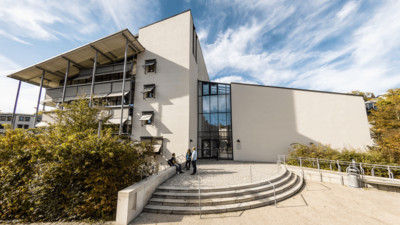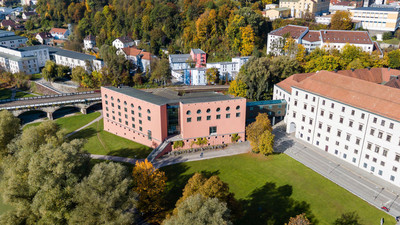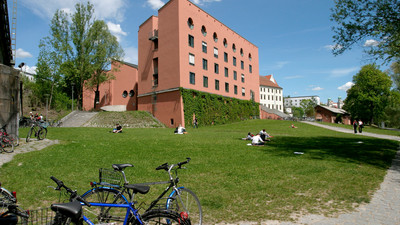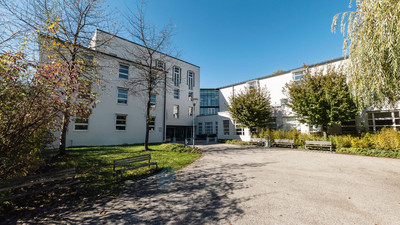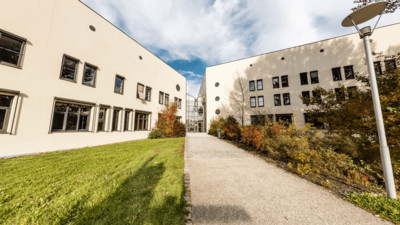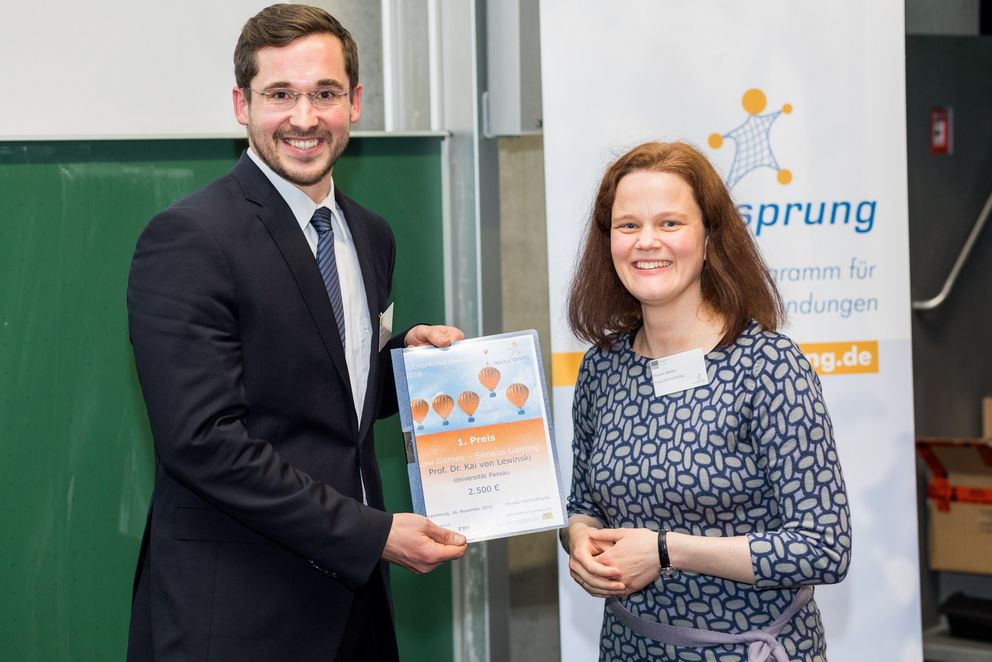The simulation game ’Law Games – serious gaming to connect theoretical study with the reality of start-up companies‘ was designed by Professor Kai von Lewinski, who holds the Chair of Public Law, Media Law and Information Law, and Dominic Habel, Graduate Teaching Assistant at the Chair, in co-operation with Innovations- und Gründungszentrum Passau (Passau Innovation and Start-up Centre). Their idea convinced the jury of the ‘Hochsprung’ award, which promotes start-up dynamics at Bavarian higher education institutions. ’We did not expect to win the award, but of course we are delighted that we did’, Dominic Habel said after being presented with the award by the Secretary of State, Bernd Sibler, at Ostbayerische Technische Hochschule (OTH) Regensburg. Passau’s project successfully competed against ten others from six Bavarian universities.
The simulation game is part of the Chair’s ‘Law Clinic’, a project launched in academic year 2014–15 which is aimed at combining legal theory and practice by enabling Passau’s law students to offer legal advice to regional start-up companies. With the help of the new simulation, the Chair hopes to be able to expand the free advice service in the future. ’Our present service is limited to individual legal issues. Our students, so to speak, act as lawyers for the start-ups‘, Mr Habel explained. However, the simulation allows for a broader representation of real-life issues, adding further roles such as that of a consumer advice bureau or business competitors to the lawyer role and adding in factors such as legal vulnerability. At the end of the simulation, the participants are asked to develop a legal protection concept. ‘The simulation is intended to create an understanding of the potential risks a company is exposed to, and deriving solutions which can help overcome the uncertainty emerging start-ups in particular are facing’, Dominic Habel said.
The simulation benefits both young companies and the participating law students. ’Research suggests that learning is more effective when done playfully. Secondly, the simulation gives students perspectives that might affirm their professional career goals. After all, only a small amount of law students become judges, while most graduates turn towards a career in the private sector‘, said Dominic Habel. By participating in the simulation game, students can gather practical experience as legal advisors and apply their theoretical knowledge under the guidance of fully qualified lawyers.
The prize money of 2,500 euros will be invested in the practical implementation of the concept. The first simulation will take place in summer semester 2017, continuing the University’s present co-operation with local and regional companies. ‘But the first companies from further afield have also shown an interest in the project‘, Dominic Habel added. In the long run, the simulation might even be expanded to other degree programmes.
The ‘Hochsprung’ award aims to motivate staff and students at Bavarian universities to engage in entrepreneurship. The award is part of an initiative of the Bavarian State Ministry of Education, Science and the Arts to establish a Bavaria-wide network connecting start-up advisers and teachers for entrepreneurship.

